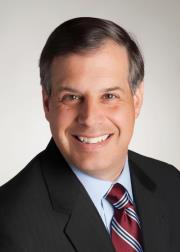 This is the first in an occasional series about Philadelphia’s technology community during the dot-com bubble over ten years ago. First up: Safeguard Scientifics.
This is the first in an occasional series about Philadelphia’s technology community during the dot-com bubble over ten years ago. First up: Safeguard Scientifics.
A little over ten years ago Philadelphia was a different place. John Street was our mayor, Allen Iverson was our most captivating athlete and technology businesses everywhere were getting funded with little more than a business plan.
By funding over a hundred other venture funds and companies in 1999-2000, Safeguard Scientifics was one of the companies at the center of Philadelphia tech boom, investing in Internet Capital Group and QVC among many others. Subsequently, it was also one of the companies hit the hardest when it all came crashing down. Its triple digit stock price fell as low as $1.86 and Safeguard was forced to consolidate its 100 portolfio companies into just nine or ten.
We spoke with current Safeguard CFO about the company before and after the tech boom. Like many investors, Zarrilli started his career as an entrepreneur and even raised capital from Safeguard for US Interactive in 1998. Zarrilli tells about the dramatic difference that a few months in the late 90s made and how Safeguard bounced back.

As always, edited for length and clarity.
For those of us who were, ahem, in high school when this happened, what was the environment like in Philadelphia around 2000?
From a technology perspective Philadelphia has always had a pretty vibrant environment tough I don’t think we always get credit for it. In the late 90’s, a lot of what was happening had roots back to Safeguard. We were the largest capital provider to early stage companies in the regions. And if it wasn’t us, it was a fund that we funded. There really weren’t many other games in town. Some thought Wayne was the epicenter of technology in Philadelphia.
We’ve been told that there was a time in Wayne where you would constantly run into other investors and entrepreneurs.
There are six buildings surrounding the building I’m in now. Safeguard used to own them and every nook and cranny used to have a venture fund or company operated by Safeguard. It was sort of a campus… I hate to say this, but almost every business plan was getting funded at some level back then.
The peak was probably March of 2000. Safeguard had 100 companies that it invested in. After the bubble burst, a fairly abrupt management change happened at Safeguard. The new team said that 80 percent of those companies did not have much value. They took the 20 that were left and consolidated them to 9 or 10. The valuations just fell through the floor.
This probably led to the stock getting as low as $2 from $100.
We were following the broader trend.
Without Safeguard, a void was created pretty quickly. The early stage community then became fragmented. That six building “campus” had a much different feel.
We hear that a lot from various groups, that Philadelphia is fragmented between the city and established players in the suburbs. What would have happened if Safeguard could have hold on to its six buildings and all of its power?
Surely you look back and wonder “what if?” For those of us that lived though the late 90’s compared to today, we will often wonder what would have happened if there was a center for those activities. We’re actually back to where we were 10 years ago, expect we have more cash than back then and we are much more disciplined [Ed note: Read our interview with Safeguard CEO Peter Boni for more perspective].
What was the perspective then among you and your entrepreneurial peers?
Most of us were funded before the crash… We were just fighting to save our businesses. There was a realization that capital wouldn’t be as plentiful for a while. Honestly, it’s probably taken about ten years to get that cycle back to some healthy level. Some entrepreneurs still say that early stage capital is hard to come by.
Wayne was nearly the center of Philadelphia’s tech community [Friday Q and A]







